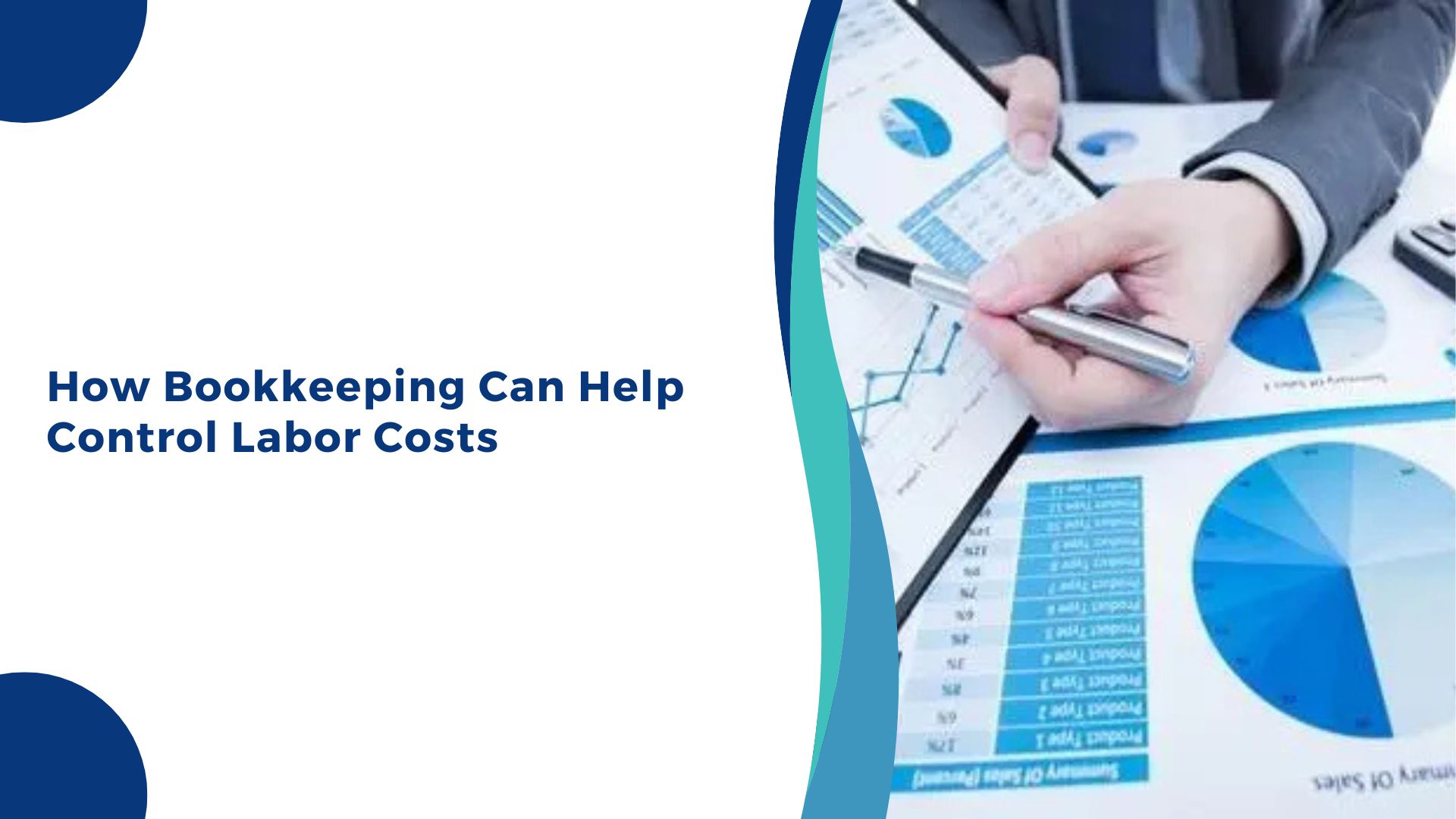How Bookkeeping Can Help Control Labor Costs
A large amount of corporate expenses are frequently related to labor costs, particularly in sectors like retail, food service, and hospitality. Maintaining profitability requires efficient cost management. When it comes to labor cost containment, using professional bookkeeping services can be revolutionary. Businesses may find inefficiencies and put cost-cutting measures in place with the help of precise financial data and strategic insights.
The Role of Bookkeeping in Labor Cost Management
Businesses can monitor and control labor costs by using the thorough records and financial data that come from efficient bookkeeping. Bookkeeping services can help with labor cost control in the following important ways:
- Tracking Payroll Expenses: Ensures accurate and timely payment to employees while preventing overpayments.
- Monitoring Overtime Costs: Identifies patterns of excessive overtime to adjust scheduling practices.
- Analyzing Labor Efficiency: Measures productivity against wages to determine if labor costs align with output.
- Budgeting for Labor: Helps allocate resources effectively and forecast future labor needs.
Why Bookkeeping Services Are Crucial for Businesses
Professional bookkeeping services go beyond basic record-keeping. They provide valuable insights that enable businesses to make informed decisions. Here’s why these services are indispensable:
1. Accurate Record-Keeping
Bookkeepers make certain that all labor-related and payroll-related transactions are accurately documented. This precision is essential for monitoring patterns and implementing changes.
2. Compliance with Labor Laws
Respecting wage and hour regulations is essential. Expert bookkeepers keep accurate records of worker hours and pay to guarantee compliance.
3. Integration with Business Services
Financial analysis, reporting, and other corporate services are frequently integrated with modern bookkeeping. This all-encompassing strategy aids companies in maximizing labor expenses without sacrificing quality.
Steps to Control Labor Costs with Bookkeeping
1. Monitor Payroll Regularly
Regular payroll audits can help identify discrepancies and prevent overspending. A bookkeeper can track wages, bonuses, and deductions to ensure accuracy.
2. Analyze Scheduling Practices
Using bookkeeping data, businesses can evaluate scheduling practices to minimize idle time and reduce unnecessary labor costs.
3. Identify High-Cost Areas
Bookkeeping records can pinpoint departments or roles with disproportionately high labor costs, enabling targeted cost-saving strategies.
4. Set Labor Budgets
A well-maintained bookkeeping system supports effective budgeting. Setting realistic labor budgets helps prevent overspending and ensures resources are allocated efficiently.
5. Utilize Automation Tools
Software that interfaces with payroll and time-tracking systems is used by many bookkeeping services. Automation increases productivity by lowering errors and saving time.
Benefits of Professional Bookkeeping for Labor Cost Control
1. Improved Decision-Making
Accurate financial data empowers business owners to make strategic decisions about hiring, scheduling, and resource allocation.
2. Enhanced Profitability
By identifying inefficiencies and optimizing labor expenses, businesses can increase profitability without compromising operations.
3. Stress-Free Compliance
Professional bookkeepers ensure that labor records comply with legal requirements, reducing the risk of penalties and audits.
Leveraging Business Services for Comprehensive Support
Integrating bookkeeping services with other business services can amplify their effectiveness. For instance:
- Financial Analysis: Helps identify long-term trends in labor costs.
- Cash Flow Management: Ensures there’s sufficient cash to cover payroll expenses without straining finances.
- Forecasting: Predicts future labor needs based on historical data and business growth.
Conclusion
Keeping labor costs under control is crucial to preserving a strong profit margin. Employing expert bookkeeping services enables companies to efficiently monitor, evaluate, and maximize their personnel costs. When bookkeeping is integrated with other business services, it becomes an effective instrument for long-term financial management. Businesses can combine cost control and operational effectiveness by making investments in precise record-keeping and analysis.
FAQs
1. How do bookkeeping services help manage labor costs? Bookkeeping services track payroll, monitor overtime, and provide detailed financial reports to help businesses control labor expenses effectively.
2. What tools do bookkeepers use for labor cost management? Bookkeepers often use accounting software integrated with payroll and time-tracking tools to ensure accuracy and efficiency.
3. Can bookkeeping help reduce overtime costs? Yes, bookkeeping records highlight patterns of excessive overtime, allowing businesses to adjust schedules and reduce unnecessary costs.
4. How often should labor costs be reviewed? Labor costs should be reviewed monthly to ensure they align with the business’s budget and financial goals.
5. Are bookkeeping services worth the investment for small businesses? Absolutely. Professional bookkeeping helps small businesses avoid costly mistakes, ensure compliance, and make data-driven decisions to control labor costs.




